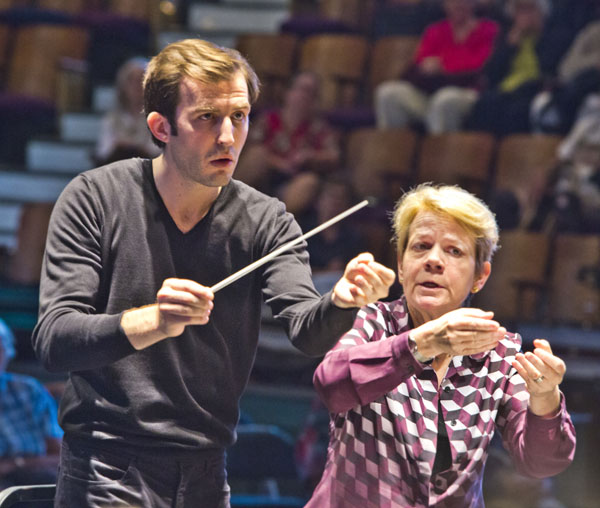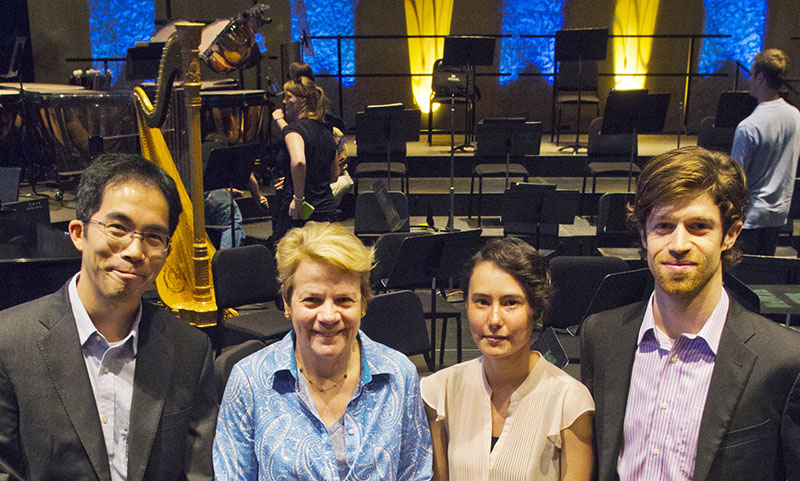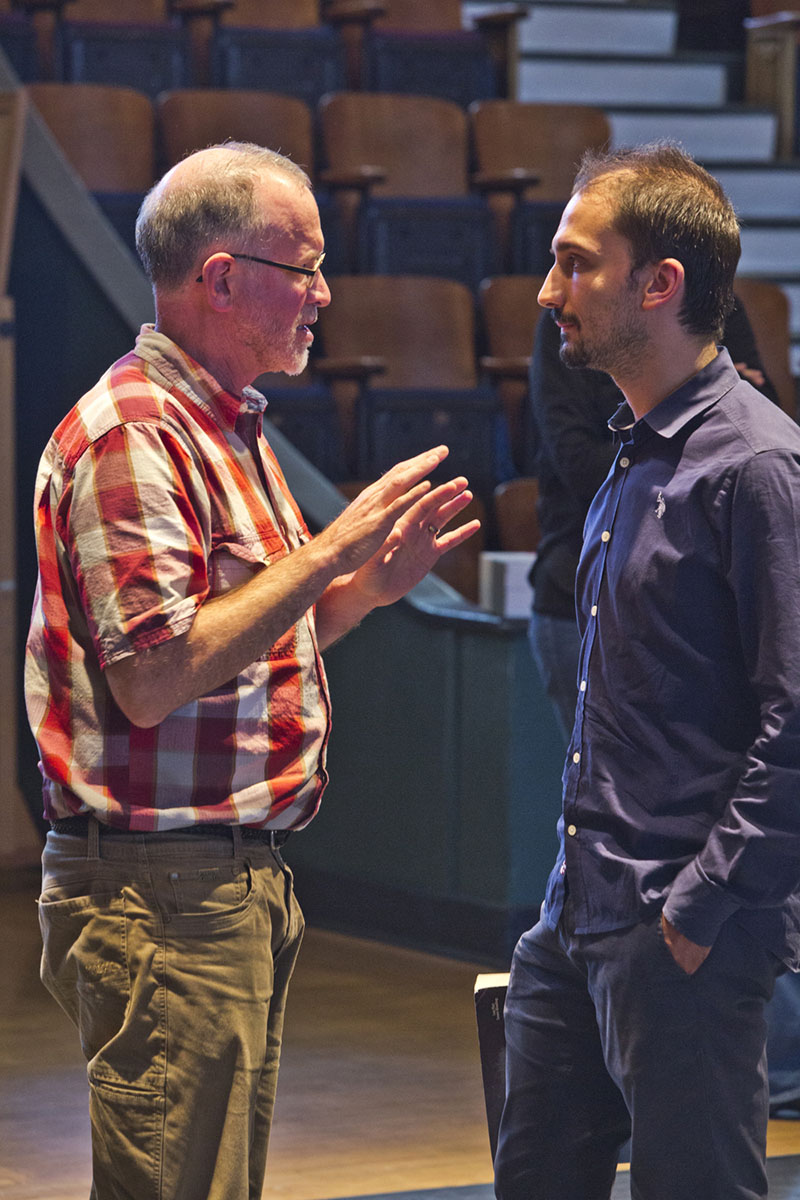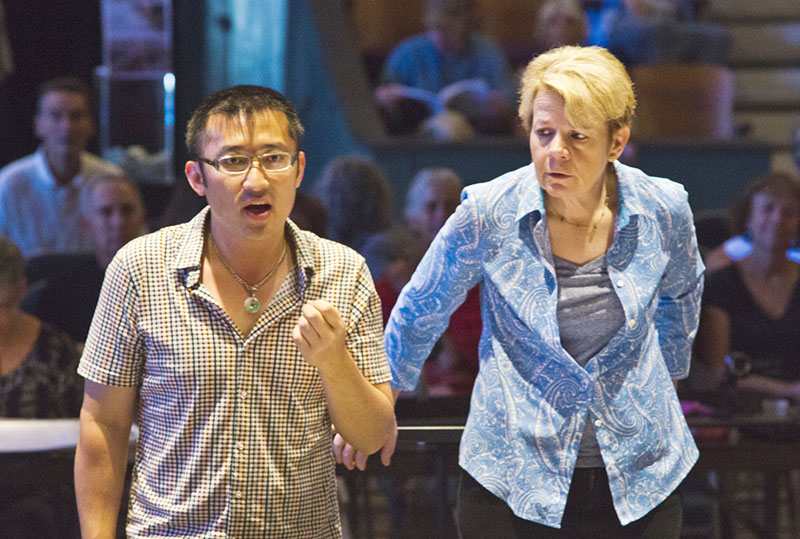By Ricky O’Bannon
Photographs by rr jones
A few hours before the world premiere of Brendan Faegre’s Dirt to Gold, composer Faegre sits in a dimmed dress rehearsal with conductors Alexander Humala and Alex Lee, poring over the score and talking through subtle changes in tempo and texture.

Both Humala and Lee will take a turn conducting the piece that evening, and over the five-day Conductor/Composer Training Workshop at Cabrillo Festival, seven young conductors and three young composers formed collaborative teams to bring brand new works to life.
The conductors and composers receive input from faculty throughout the workshop on everything from how to stand while on stage to how to speak with the orchestra, but conversations like Faegre and his two conductors had during rehearsal highlight a goal of the workshop and also one of the artistic rewards of performing new music.

Simply put, performing new music allows for a creative back-and-forth between author and interpreter that is both artistically rewarding, but also informs the way performers approach music in the orchestral canon.
“It sends this message [to conductors] that the way you approach these living composers and their works that are fragile and vulnerable and that they really care about, is not so different from how you should be approaching the human beings who wrote the older pieces that we know,” said conductor James Ross who mentored conductors in the workshop.

“You want to get to know the old composers as closely as the living composers that you’re meeting and dealing with. It sort of throws a new light onto what you’re actually doing when you’re conducting that music.”
While conducting or composition workshops are common in the orchestral world, Ross said it is rare to have young artists to be mentored together. Particularly for composers and conductors early in their career, these kinds of relationships allow each to share in the other’s musical growth.
“You do one piece by them, and five years later you may do that piece again. A year after that you may premiere a new piece of theirs, and somehow your relationship with them [allows you to participate in] the unfolding of their musical language,” Ross said. “With Beethoven, what can you do? You can do the Ninth Symphony and then do the First.
“But to actually be living on the composer’s time scale and to be able to help them recognize what are new directions, what are misfires [is different.] It’s not always obvious to composers how things are unfolding,” he said. “It’s important to have a second, supportive opinion who knows enough about where you’re coming from so that they can put the new piece in context. Conductors can do that for composers more than anyone else can — very often better than they, themselves.”
In return, Ross said a composer who really knows a particular conductor can provide that same support in a way that is rare.
“For us conductors, who usually don’t get anybody giving feedback to our faces — except for critics who tell us what we’re not doing well — it’s really helpful to have a trusted voice who can help put our work in context,” he said.

Composer Huang Ruo served as a mentor for the young composers during the workshop and said establishing a close working relationship with conductors is crucial because those are the people who are responsible for translating what is in your head and score to the audience.
“You need someone who understands your music to interpret your music,” said Ruo. “For composers, when they see two or three different conductors performing their work, they also can see what makes it come out different, which helps them really think about their piece.”
Conductors often serve as champions for the work of a composer and help get their music into the world. As they work together and learn from one another, Ruo said it also creates trust, which is key because there is often not enough rehearsal time to go through every detail and a composer won’t always be in town to answer questions about a particular notation in the score.
“If they understand your music, you trust them to deliver it even when you’re not there,” he said.
Eventually a conductor with a close relationship with a composer might become known for performing their works, and that in turn might lead other conductors to listen to recordings by that conductor when preparing those pieces.
“I think it’s very important, [particularly for young artists] because they build each other throughout the years as they become mature,” Ruo said.
